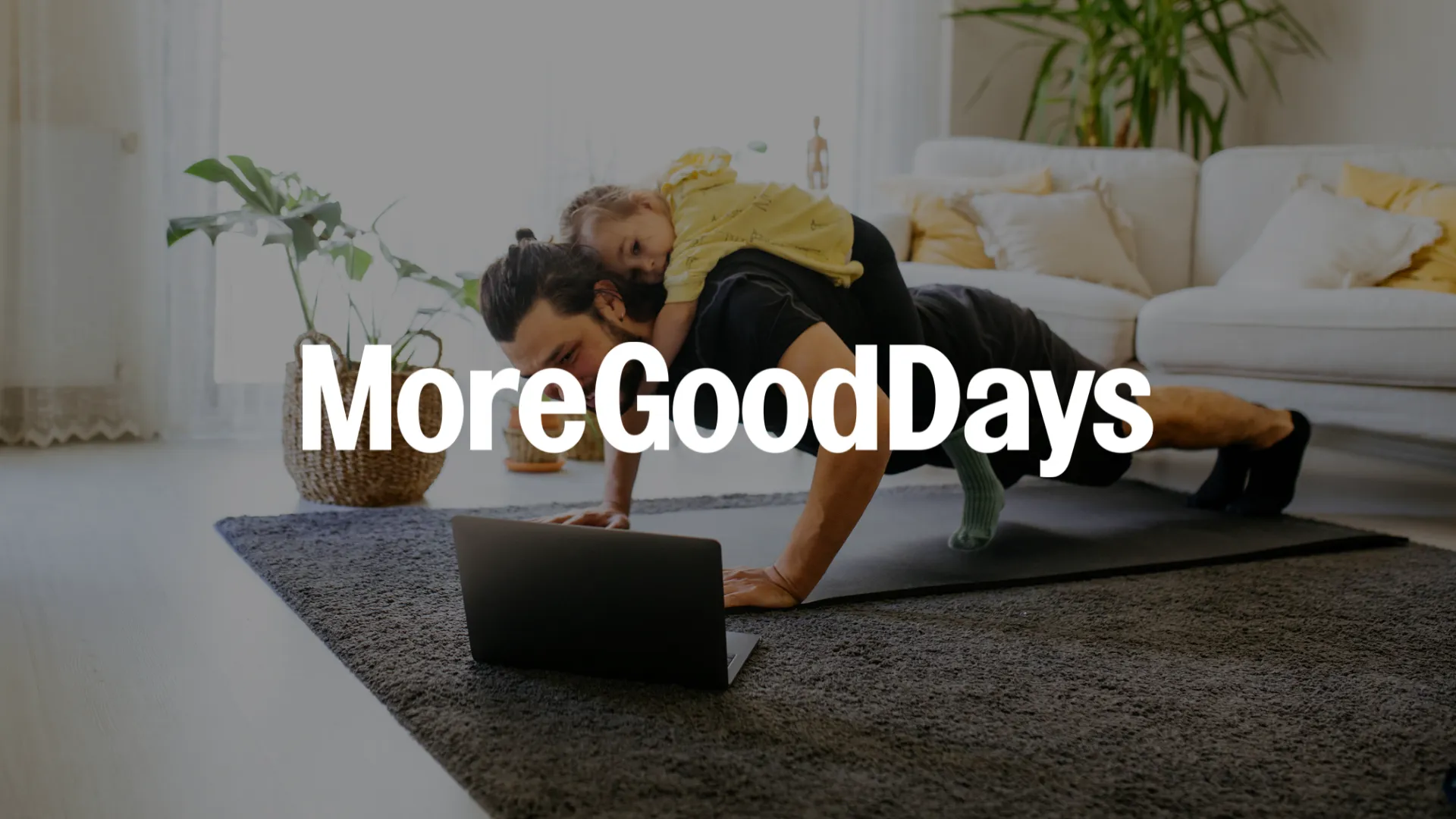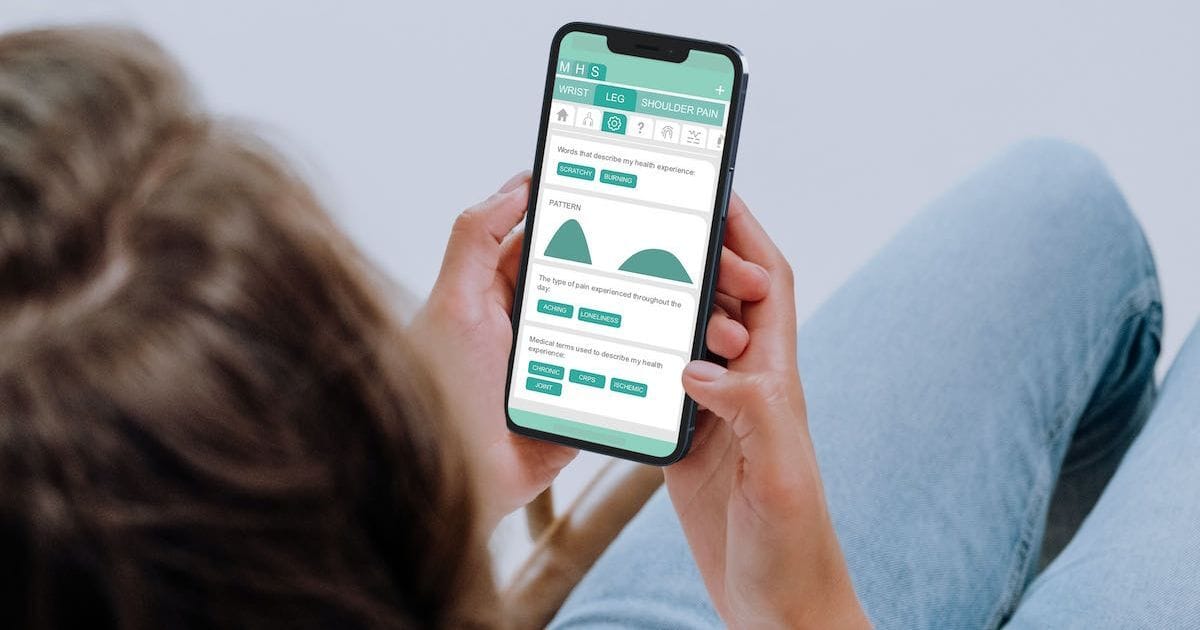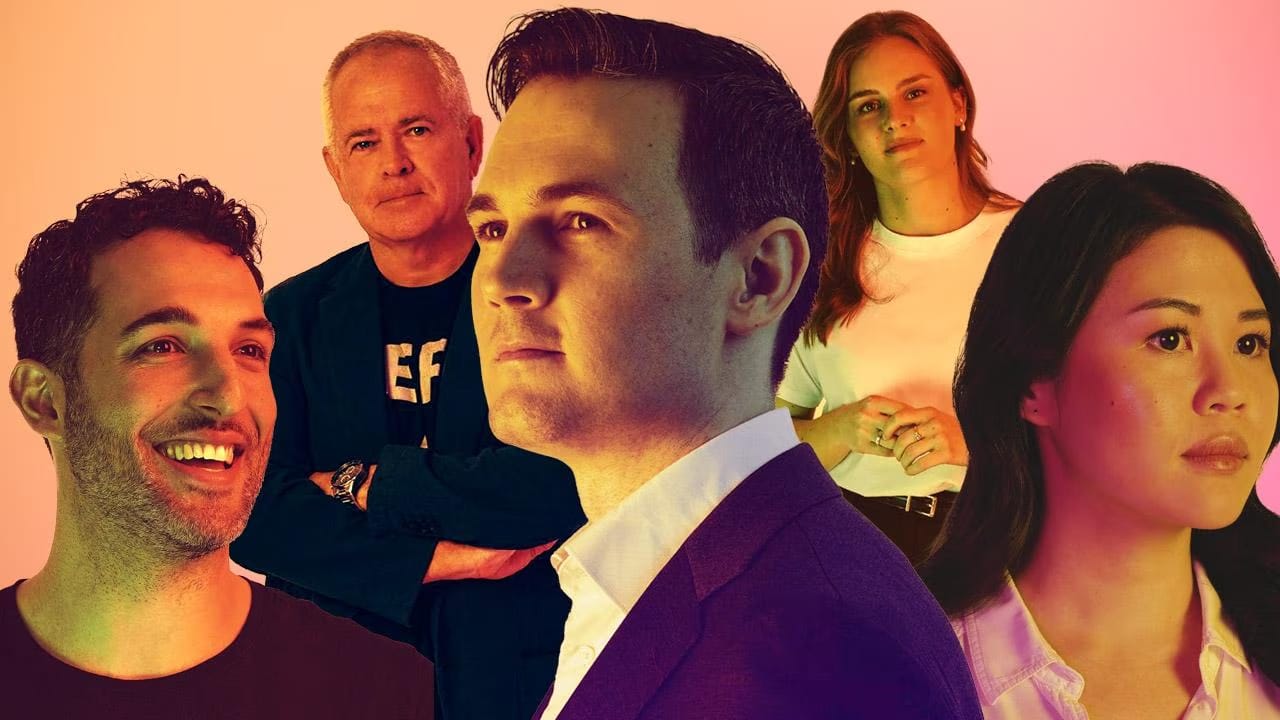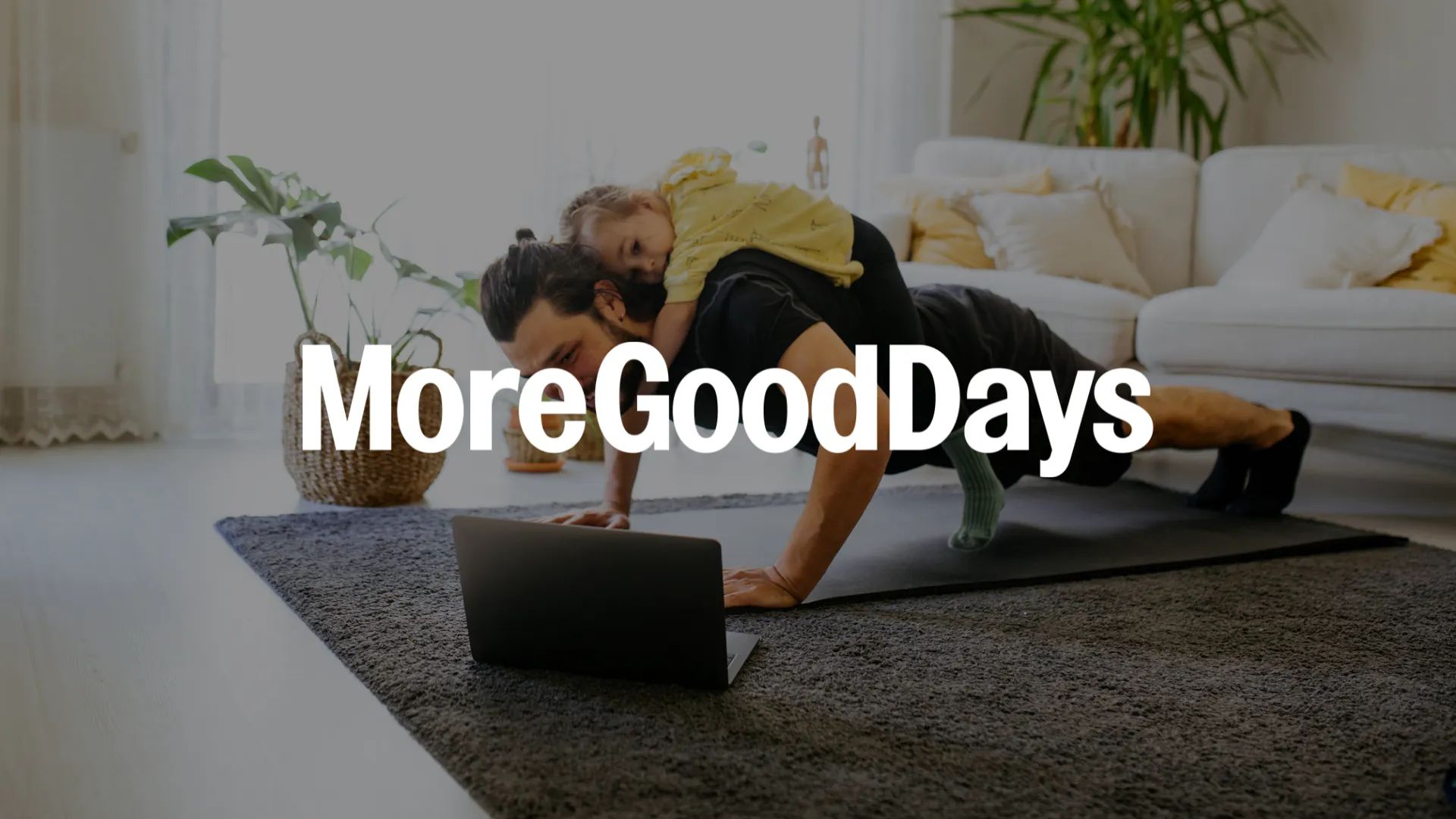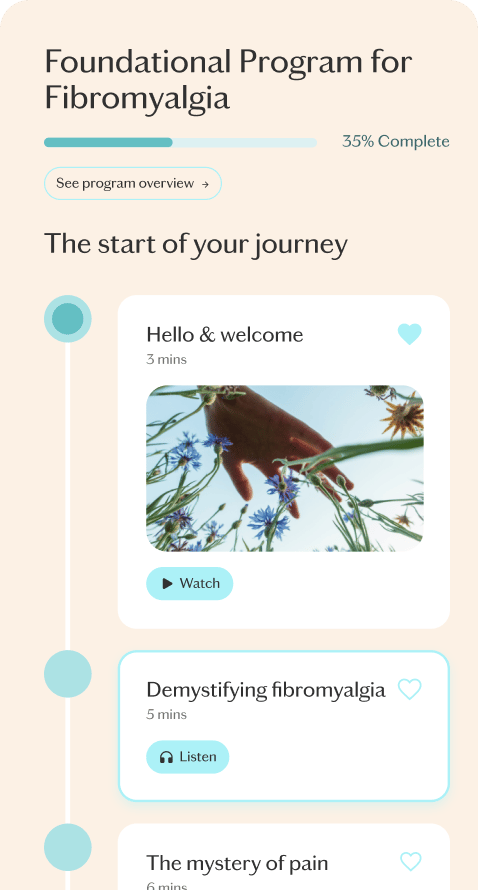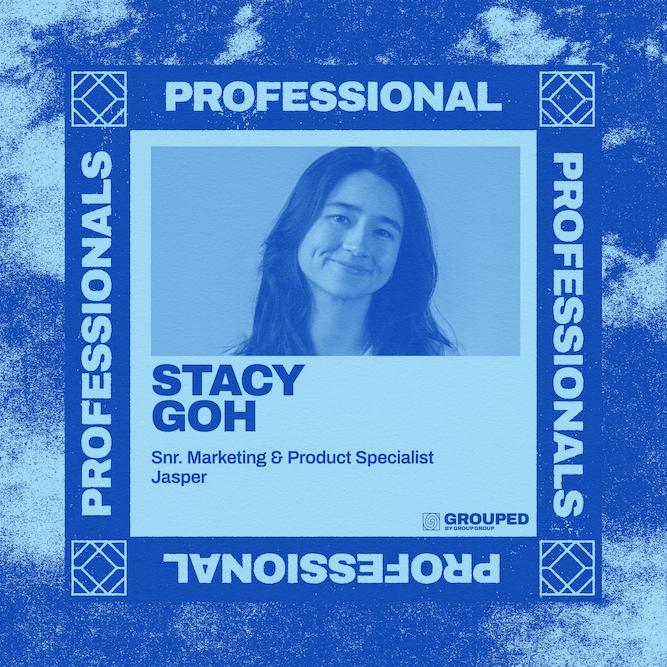- GROUPED
- Posts
- THE DIFFERENTS feat. Nel Fulia
THE DIFFERENTS feat. Nel Fulia
On: Building a highly impactful health company with MoreGoodDays - an evidence-based pain-management and recovery program that has been designed and evaluated to achieve outcomes for people in pain. Founder & CEO Nel joins the conversation to share the personal story of why the company was started, the importance of education, the solo founder realities and the ambition for impact at scale in a very complicated health industry.
Meet: Nelia (Nel) Fulia, Founder & CEO at MoreGoodDays
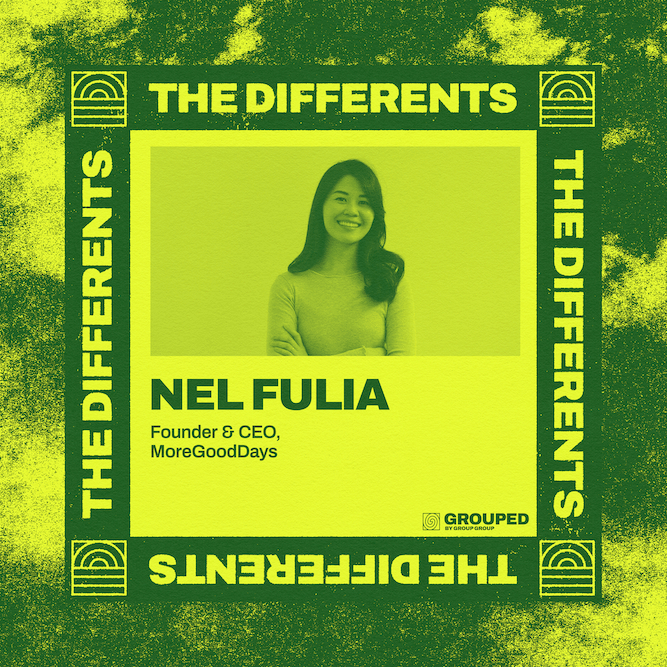
I’d never met Nel (or at least don’t think so) but I reached out cold a week or so prior to launching this chat, purely as I had been speaking about some of my own experiences with chronic pain, and people kept mentioning MoreGoodDays, and I really liked what they were about as I dug in further.
I particularly enjoyed the emphasis on educational content, which is a deliberate and crucial aspect of MoreGoodDays’ focus for people who engage and use their platform, by the droves.
Nel outlines their ambitions for scale, the realities of that in the complicated health industry, her experience fundraising and curating who sits on the cap table, and a bit of educational story-time about Fibromyalgia 👇️
*This interview was published on World Mental Health Day 2025 (October 10). There would be plenty of ways people might approach the conversation on this date - running this interview on this topic, seeing as chronic pain really personally affected me and plenty of others I’ve connected with on the topic recently, felt very right. Enjoy.
Gaz:
Hi Nel thanks a lot of joining for the chat, I’d love to begin right at the point that MoreGoodDays started, as in, what inspired you launching it?
Neala:
Yep, so my father's journey was an inspiration for me to look deeper into this whole chronic pain sector. My dad has ongoing back pain that really impacted all parts of his life, including his mental health and his ability to work etc.
During the time I was working for a UK foundation in research and innovation in healthcare, and we were focused on chronic pain, because it's one of the largest drivers of hospitalisations and one of the largest cost drivers for chronic condition management in their public health system.
Similarly, in Australia, it's also one of the highest cost drivers, with back pain alone costing about $3 billion a year in just treatment spend across public and private sectors.
So that was the beginning of the inspiration for beginning right there: because of my dad, but also because of realising there's a huge gap between the research around what's supposed to work when pain becomes chronic.
What are actually effective treatments, vs what people seek out and are offered when they seek care for their different pain types.
There was a big discrepancy in that. And I wanted to play a part in closing that gap and making evidence-based approaches more accessible.
Gaz:
So in founding MoreGoodDays, what’s some of the reality behind that that you can share? Actually getting the company started, the capital, the team involved…
Neala:
I would say the biggest learning curve and challenge for us in being able to set up and have meaningful impact in this space has been finding the right payer.
And this is probably the problem that all healthcare companies eventually meet. It's: “who's actually going to pay for these evidence-based approaches to pain care?”
“Who's incentivised enough to be able to want to pay for it?”
Because what we found was that the approaches that do work are a little bit more comprehensive. They're a little bit more expensive and they require multiple disciplines. And it's not really suited for a direct-to-consumer business model.
So what we've done is really test out different insurance schemes and see which insurance schemes are incentivised to also help people.
People with chronic pain, and how we can provide something in terms of product and rigour and scale, in order to be able to sell to them.
So right now we're live in multiple schemes.
We're live in income protection schemes, which means that if you've had to stop work completely, you can claim income protection and you'll be put onto our programs to help you recover.
Another scheme is post-motor vehicle crash. So, if you’ve been in a motor vehicle injury and your pain isn't resolving after a few months in NSW, they refer you to our programs, to aid with that recovery.
And shortly, we're launching with a large private health provider.
So this will be the largest potential, which is to provide to almost all their members, at no cost, access to our programs if you have back pain.
Gaz:
So as you’ve scaled MoreGoodDays, you’ve then gone out to raise investment from…Blackbird, Giant Leap, Snow Foundation…
Neala:
Yep, and Side Stage Ventures, and LaunchVic, a whole bunch of investors.
Gaz:
So what’s the reality of demonstrating what the right narrative is in terms of the investment conversation, in terms of the traction you’ve exhibited? What’s meaningful to focus on in that investor chat?
Neala:
At the time when I was raising, we’d completed an initial pilot and generating revenue of around $300,000 (AUD) ARR.
We had about 80 to 100 paying customers, and it was really early in our journey.
But I think it was, you know, enough data to show that there was a desire to engage in something that we’d built.
There was a need and there were outcomes. So what we had produced actually works and delivered meaningful outcomes in the way that it was evaluated.
That was where MoreGoodDays was at when we raised, which was in 2023, two years ago.
Since then, our major lesson has been similar to what I said earlier, which is that to actually scale really meaningfully in the health space, we need to find large payers that are willing and aligned in incentives such as ours to be able to pay for our programs completely.
Another founder I remember said this to me - and I now fully agree with him - that when it comes to chronic condition management, it's really hard to make a direct-to-consumer model work.
So, that's been my main lesson. And our journey for the past two years has been how do we show enough value, traction, return on investment to be able to secure these insurance partners.
Gaz:
How about for yourself as a founder? Upon reflection, you know, you're running a company with people that have such personal and emotional connections to the problem. That might even be some of your team, if they’ve happened to experience chronic pain conditions themselves, but how has the journey been for you, to centre on the individual journey here?
Neala:
It's been really rewarding, and difficult, and challenging and a, you know, growing experience, I think.
I'm a solo founder as well, and I raised funding at the same time that I started my family.
I was pregnant when I raised and gave birth the day we hired the team.
So it's been a lot of learning, I would say, in terms of how to run a company, how to make it work, how to make it sustainable, how to make it grow.
And also how to balance my time as a founder and as a mum. So that's been a huge part of my journey, I would say.
It’s because of the impact we’re making, and the potential for further impact that we could be making as part of MoreGoodDays, that I keep going.
We get to speak to people that we help change their lives, on a weekly basis.
We get to hear their stories where when we put jobs out in the market, a lot of our alumni apply and we also prioritise kind of putting it out there to our alumni and for them to apply.
I think it's been incredibly rewarding and also just motivating to have lived experience really close to the business.
It’s one of our philosophies, that we want people when going through our program, to not feel like we're experts, doctors, clinicians, medical people that are going to tell you what to do, but instead, that we’re actually there with you on that journey.
So as a founder I feel like there's very few experiences in life that are more rewarding.
I think if you're a growth seeker, like myself, then be a founder, right? Everything from the way it stretches you from a tangible skill set perspective, but also personally, the level of stress I'm able to handle now and the level of pressure. I was a management consultant at BCG before, and worked long hours and all of that.
But the personal pressure, you know?
You put everything on the line, your reputation, what you stand for. And I think for someone like me that's not used to being in the limelight, it also just feels like, wow: I'm putting everything on the line to make this.
Gaz:
I really appreciate the openness, thank you.
Neala:
There’s also this intersection of trying to achieve impact and trying to achieve a high growth business, which is an interesting challenge. Making social change in the areas that we are passionate around has been an important part of my growth journey.
Gaz:
And if you don’t mind me honing in on it, from your more personal vision for impact related to what you’re putting out there, as opposed to the MoreGoodDays perspective?
Neala:
In terms of MoreGoodDays vision, or mission around impact, it's really two main things.
So it is to make evidence-based treatments for chronic pain mainstream practice. That’s for me personally, my mission statement, and then going back to the company focus, the obvious points of impact are around tangible outcomes, like reducing pain, improving mental and emotional well-being, improving function for a person in pain, and so on.
We measure a lot of those metrics through validated surveys, and actually show our ability to impact those metrics very tangibly.
Gaz:
Last point on the investor aspect now - always fascinated by how capital flows with big visions - is how storytelling your vision during that fundraising time, how was that received? How did that resonate and how did you approach it as a founder? They got it, they didn’t get it?
Neala:
100%. I think I could immediately tell in the first 5 to 10 minutes whether this person got it and therefore would be interested to even ask smart questions about it.
And then immediately whether they really understood it. They understood the scale of it and the potential of that scale to crack it and bring it to the mainstream.
Obviously investors care a lot about the total market size and the potential for scale, so I think honestly it was two reasons.
So for example the first group I spoke to was Blackbird, with Samantha Wong and Nick Crocker. I was speaking to Nick, and his whole family, including his wife, are doctors. And so during the pitch process, he was also in discussion with his wife asking questions relating to chronic pain, validating the approach further.
But generally, I think the investment thesis around healthcare is very different.
And I'm sure everyone else says that about their own niches, but it's very different to other types of companies, pure tech companies, AI companies. I think when it comes to healthcare, especially if you're healthcare and solving a health problem - as opposed to say, developing a platform around facilitating delivery of healthcare - solving a health problem, like trying to solve cancer or solve chronic pain, it becomes a very different investment thesis.
So I think you really need people that understand the impact, that understand that it's not going to be 90% plus margins, and that outcomes matter, but also outcomes are the only way to scale and growth doesn't look like a hockey stick, it actually looks like clumps based on when you're able to unlock the next phase of your credibility and partners.
Gaz:
Oh that’s a really great explainer, I’d love to now emphasise the education aspect for MoreGoodDays, that being, educating the population about chronic pain.
Fibromyalgia - this is sort of a leading conversation starter for your team, and obviously a leading aspect of people consulting with MoreGoodDays or jumping on board.
What's something for the people who are sort of uneducated about this particular condition that they should know? I wasn't really that familiar with it up until very recently, and I was quite interested to observe even in my own scenario a few symptoms I’ve experienced concurrently that are part of this (not to self-diagnose too quickly however). More that I was thinking more about my own personal health a bit more, but if I’m seeking an answer, here’s something with a name attached to it that might potentially start explaining it a little more?
Neala:
So, I mean, fibromyalgia is a… often a very controversial diagnosis. It's often a very vague and misunderstood diagnosis as well.
When you have any type of chronic pain, so for example, someone with back pain like yourself, if that gets unchecked and unmanaged, it can often evolve into symptoms like fatigue, like widespread pain, that then eventually become fibromyalgia.
So, actually, we target fibromyalgia specifically in our direct-to-consumer kind of population just because it's a very kind of misunderstood and therefore there's a gap for it in the public spaces.
Our expertise focuses on chronic pain more broadly. But if you don't know about fibromyalgia, I think there's probably two things to know:
The first one is that fibromyalgia is often a diagnosis or a catch-all term that's used to describe a lot of unexplained symptoms.
So it's important to get checked out and investigated. Yeah. But if you think you have fibromyalgia, well, let's make sure you've done the bloods, you've done the scans to make sure that, you know, we've ruled out other things.
Because often we have people being diagnosed with fibromyalgia, but they end up having multiple sclerosis or cancer or things like that.
So it's just often can be a catch-all diagnosis. The second is that if we've done all that and it is truly these symptoms that you're experiencing, that you can actually recover from it.
So a lot of doctors might say it's a lifelong condition. “You'll just have to live with it and manage it forever.”
But we've helped thousands of people with fibromyalgia. And they explained their benefits to us as, “I used to have a flare-up a week, a week, a month, and now I only have one flare-up maybe a year.”
So it is possible to really recover meaningfully from it and re-engage with life. But the longer you've had it, the harder it is for that to happen.
Gaz:
OK! Well lets quickly centre on educational content, and the importance of it, in MoreGoodDays to help people understand their chronic pain more. How has that sort of resonated in your brand building, your positive brand building, I'll call it?
Neala:
Education is a core intervention as part of our approach. We deliver pain neuroscience education that's been extensively studied across hundreds of papers and in very reputable journals. Which shows that actually the most important thing you can do when you're supporting someone with chronic pain, is to educate them on what pain is and how it turns chronic and what can help.
And so a lot of what we do through our programs and everything MoreGoodDays is grounded on, is this modern neuroscience education around pain.
And the fact that pain is more than a physical experience and how your psychosocial - especially mental health - can add to that chronic pain cycle and make everything worse and more persistent over time.
So, you know, it's not new for someone in back pain to see a physio and get prescribed exercises. But if you think about your pain differently, then those exercises have a different meaning.
So it's not just about strengthening, but it's about retraining your pain response.
Gaz:
So now, to round this fantastic chat out, thank you again, I’ve learnt heaps… I'd love to know your vision of what it looks like for MoreGoodDays in the near future? Partnerships being announced, these growth clump steps for example?
Neala:
Yep, so the next step for us is going live in this private health market and being able to show that we can deliver return on investment for our insurance partners.
This will springboard us to be a go-to pain-management approach, or company, for all private health scenarios.
But we're also, in parallel, conducting pilot studies with public systems, public health care, so public hospitals, in various states.
And for us, we want that to be an important thesis to show public governments that, hey, actually hybrid models of care like MoreGoodDays can be cost-effective, and more effective than usual care.
And therefore, we should be embedded in public budgets. 70% of all health care spent in Australia is still through public systems.
So for us, in order to grow, it's really important to be able to crack into that public space. But it's incredibly difficult, and you need a certain level of evidence and credibility that your program and your interventions do what they need.
Gaz:
OK awesome, we’re right on the precipice then, how about one final statement: I would love to ask, in a gentle fashion, what sort of challenge you would put on people that are trying to understand their chronic pain conditions, that have maybe done extensive online research, but haven't found the answers, lean on referrals from friends, etc….
How would you challenge someone to take their chronic pain seriously based on a lens of what MoreGoodDays can facilitate for them?
Neala:
I mean, I think if you frame it that way, like a gentle challenge for people living with some kind of ongoing pain - I don't want to scare people - but I think the reality of the science is that we know that the longer you've lived with pain and the more ongoing it is, I would say the longer you live with pain, the more it involves your nervous system, your brain and your spinal cord.
And just like your brain and your spinal cord gets better and faster at the things you practice, your body can get better and faster at producing pain.
And so, finally, finding approaches that do work for you to stop that cycle is really important.
Passive interventions like surgery, medications, spinal manipulation - they can help provide immediate short-term relief, but you need to find the things that can help you long-term.
MoreGoodDays: www.moregooddays.com
Follow Nel on LinkedIn: https://www.linkedin.com/in/neala-fulia-605aa247/
A LIL CURATION FOR YA, C/O NEL:
Normally for a guest, I get them to provide me with a movie or music recommendation, but this one’s is a bit more meaningful seeing as Nel sent this snap to me when I asked for a ‘pic she liked’ and this came back:
“Hi Gaz attaching a photo I’ve never released but is special to me as it’s with Prof Lorimer Moseley who is the guru of all things chronic pain and his life work is really what I’m trying to bring mainstream!”
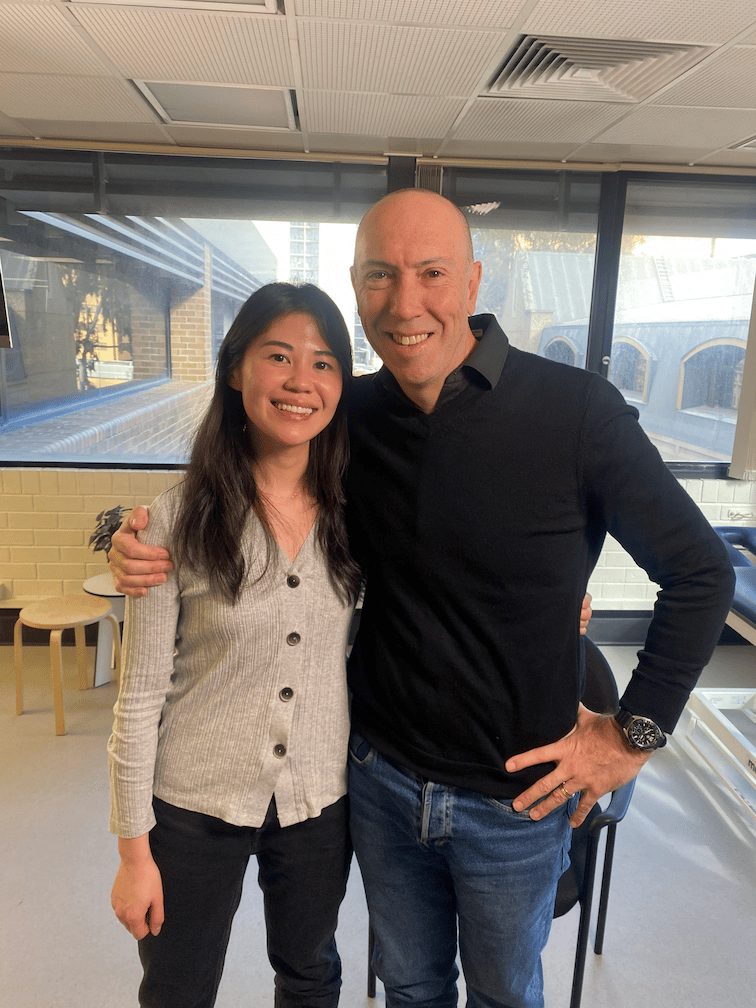
Professor Lorimer Moseley AO is a leading pain scientist and physiotherapist, currently Bradley Distinguished Professor at the University of South Australia. With a PhD in pain neurophysiology, he has held research roles at the Universities of Sydney, Queensland, and Oxford.
He founded the Pain Revolution and leads the Body in Mind research group, focusing on how the brain and mind shape pain experiences. Author of over 400 publications, his work has transformed chronic pain understanding and rehabilitation worldwide. Recognised as an Officer of the Order of Australia, he’s also a Fellow of the Australian Academy of Health and Medical Sciences.
Thanks for sharing Nel 🤝
